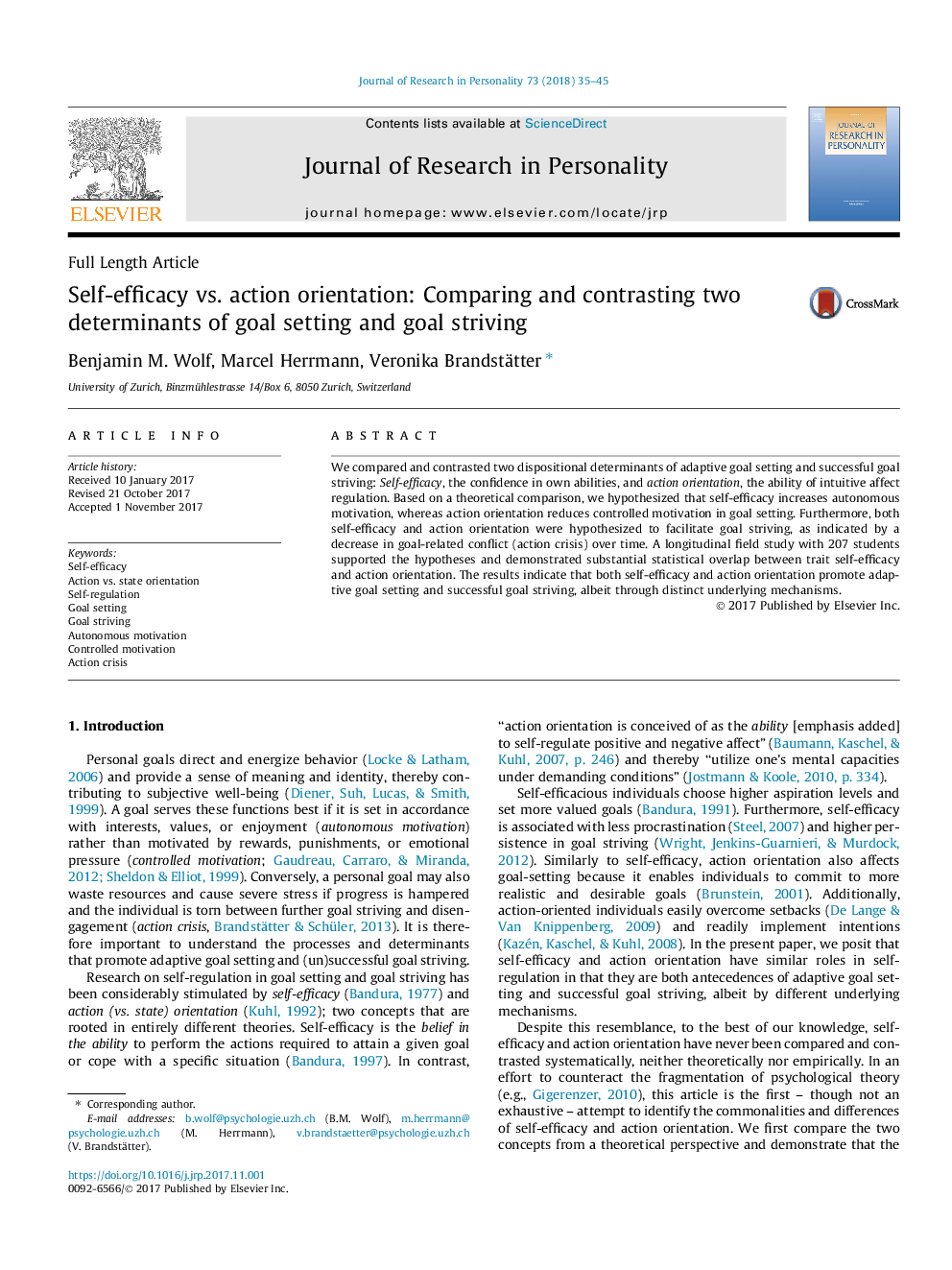| Article ID | Journal | Published Year | Pages | File Type |
|---|---|---|---|---|
| 7326368 | Journal of Research in Personality | 2018 | 11 Pages |
Abstract
We compared and contrasted two dispositional determinants of adaptive goal setting and successful goal striving: Self-efficacy, the confidence in own abilities, and action orientation, the ability of intuitive affect regulation. Based on a theoretical comparison, we hypothesized that self-efficacy increases autonomous motivation, whereas action orientation reduces controlled motivation in goal setting. Furthermore, both self-efficacy and action orientation were hypothesized to facilitate goal striving, as indicated by a decrease in goal-related conflict (action crisis) over time. A longitudinal field study with 207 students supported the hypotheses and demonstrated substantial statistical overlap between trait self-efficacy and action orientation. The results indicate that both self-efficacy and action orientation promote adaptive goal setting and successful goal striving, albeit through distinct underlying mechanisms.
Keywords
Related Topics
Life Sciences
Neuroscience
Behavioral Neuroscience
Authors
Benjamin M. Wolf, Marcel Herrmann, Veronika Brandstätter,
